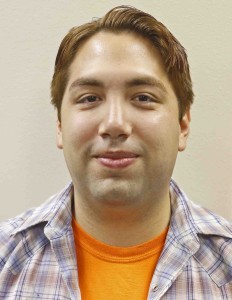Editor’s note: This is the first in a three-part series on the Affordable Care Act’s impact on UTEP students.
The next major rollout of the Affordable Care Act is slated to begin Oct. 1 as the battle to strike it down and the ensuing shutdown of the U.S. government continues in Congress.
The legislation contains stipulations that could affect students at UTEP and across the nation.
President Barack Obama’s Patient Protection and Affordable Care Act, referred to as the ACA, was passed in March 2010.
Among the provisions in the bill is the establishment of an insurance exchange and revamping of standards for government-sponsored health systems such as the Children’s Health Insurance Program, Medicaid and Medicare.
Tea Party Republicans in the House are threatening to shut down the government on Oct. 1 in an effort to block the act and withhold funding.
On the UTEP campus, the ACA may change the way students will have access to services that are paid in part by their tuition.
The Student Health Center is operated by Vivature, a company that administers health care support for more than 150 campuses nationwide.
“More students will have health insurance, whether they have it through their parents or on their own,” said David Smith, vice president of corporate
compliance at Vivature. “All of a sudden, you’ll see it easier to get health insurance.”
Since 2010, dependents under 26 have been able to remain on their guardian’s insurance through a provision of the ACA.
Smith said that most insurance carriers, who will be participating in the exchange, have not yet revealed pricing or plans. Vivature expects to acquire more details at the beginning of October and will share information to help students understand the full implications of the new exchange.
“Being a college student, you have nothing to worry about honestly,” said Andrew Luengo, junior political science major. “It is short sighted to think that paying a few extra bucks for universal Medicare, like any other first-world country, will affect us.”
According to a survey conducted by the Commonwealth Fund, a private advocacy and independent research organization, more than one-third of young adult students (ages 19-29) were uninsured at some time in the past year.
According to Healthcare.gov, the new site that will host the medical insurance marketplace, most insurance plans that will go into effect in 2014 will include a standard benefit package. Among these benefits are emergency services, maternity care, laboratory testing, mental health services and prescription drugs.
According to Blue Cross Blue Shield of Texas, insurance providers will accept new individuals for enrollment even with preexisting conditions.
Individuals under the age of 30 who do not wish or are unable to purchase a full-tier of health insurance will be able to obtain a “catastrophic plan.”
These plans are designed to protect individuals from the crippling expenses that can be associated with a major illness or injury.
These plans also include three visits to a primary care provider at no additional cost.
All marketplace plans must cover a series of preventative medical practices.
These practices include STD screening, testing for diabetes and counseling for lifestyle issues such as alcohol misuse or tobacco cessation.
The preventative policies also cover immunization for communicable diseases such as hepatitis, influenza and meningitis.
Since 2012, UTEP has required a bacterial meningitis vaccine for all students under the age of 30.
Texas Well and Healthy, a grassroots campaign, states on it website that “adequate health care coverage helps to protect young adults from unexpectedly high medical costs and can make a big difference in helping young adult students complete college and achieve academic success.”
However, some are not convinced that the ACA is a positive initiative for students.
“Opting into the ‘Obamacare’ exchange is a bad idea for young people,” said David Pasch, public information officer for Generation Opportunity, a non-partisan advocacy group.
Pasch describes the ACA as “creepy” and potentially illegal. A press release from Pasch encourages youth to opt-out of “Obamacare” because of corporate cronyism and a shift in tax burden to the millennial generation.
Pasch said in the long-term, students will be left to pay the bill for aging Americans. Pasch is also concerned about information that will be collected by the government to administer the new programs.
Health insurance information is protected by the 1996 Health Insurance Portability and Accountability Act, which prevents certain information from being shared across electronic systems without a patient’s permission.
Dec. 15 will be the last day to purchase healthcare coverage that will activate when ACA has its full rollout on Jan. 1, 2014.
The Internal Revenue Service will apply a penalty against anyone not insured during 2014. The penalty fee for the first year will be $95 or 1 percent of household income, whichever is greater.
The amount of the penalty fee is set to increase yearly.
For more information about the insurance exchange, visit healthcare.gov.
S. David Ramirez may be reached at [email protected].










